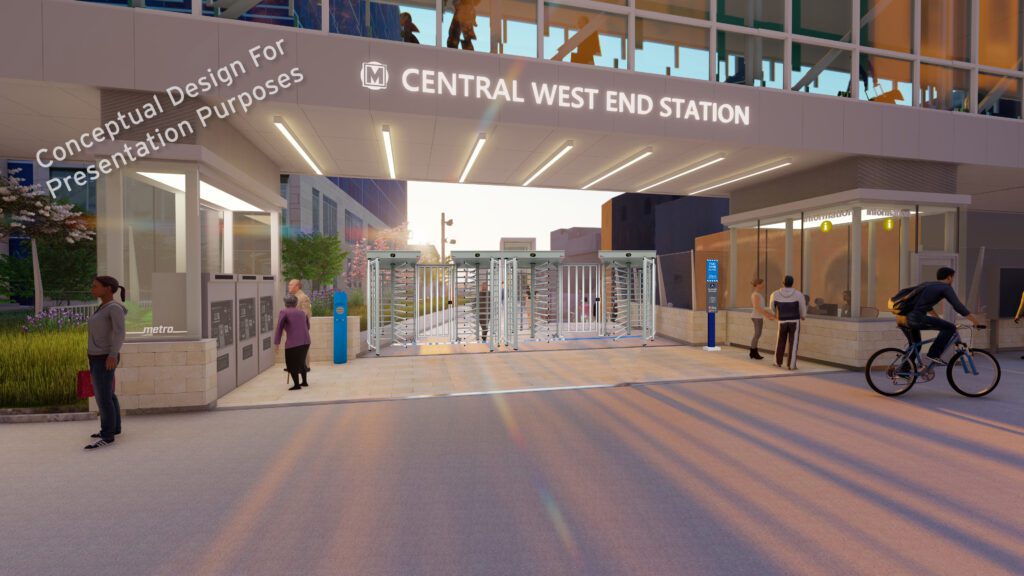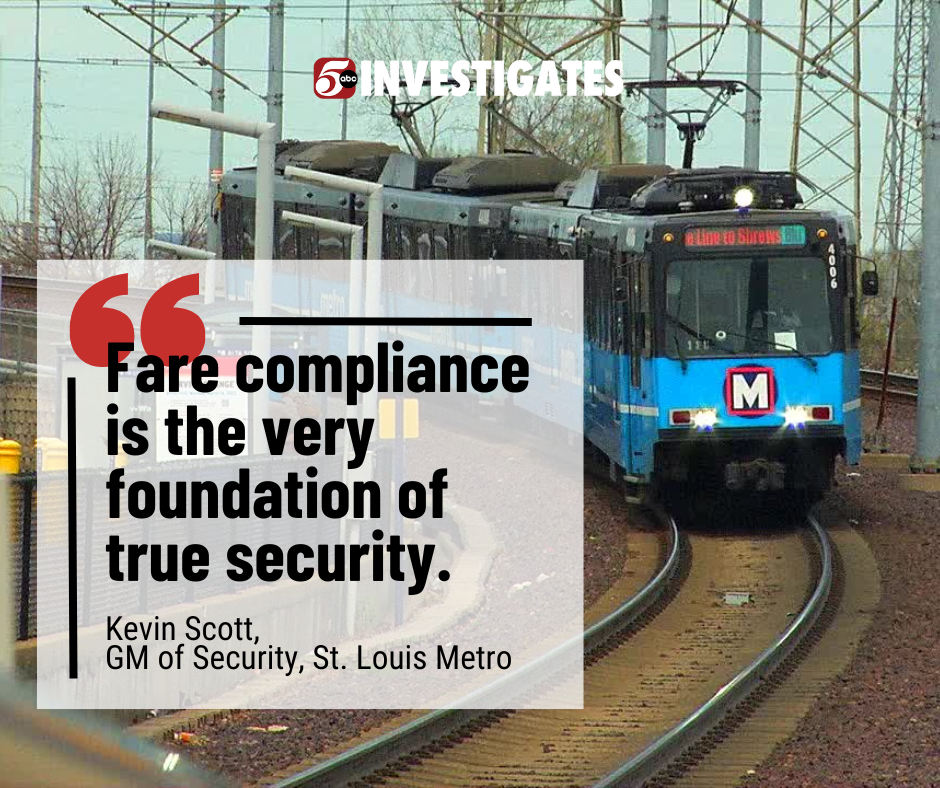As Metro Transit struggles to reduce crime on light rail, this Midwest city is going all in on turnstiles
As Metro Transit searches for solutions to a safety crisis on light rail, the biggest complaint of many paying customers starts at the entrance to every train station where there is nothing stopping someone from stepping onto the platform without a ticket.
While the Governor’s office is now pushing to close off several high-crime stations, another Midwest transit system with similar safety problems is going even further.
5 INVESTIGATES traveled to St. Louis, where a $52 million plan to install turnstiles, gates, and other barriers on every train platform is now underway.
“Fare compliance is the very foundation of true security,” said Kevin Scott, General Manager of security for the regional transit system. “If you allow for an open system, a free system, you will see a negative impact on the rates of incidents.”
Perception Problem
Much like the Twin Cities, there is a broad perception that riding light rail in St. Louis is unsafe, according to Scott.
He says the system’s reputation has been negatively impacted by some high-profile crimes, but also by persistent smoking and drug use.
“Those issues are what profoundly affect overall rider experience,” Scott said. “If they get on the system and they feel uncomfortable, they’re not going to ride it.”
The plan to close the system is also receiving $10 million in funding from the private sector to begin installing full-height turnstiles, gates, and fences at all 38 stations starting next year.

Taulby Roach, President and CEO of Bi-State Development, revived the idea of closing off the light rail system after he took over in 2019.
“What the public has been telling us is they want a system that is safe, reliable, and reasonable. And closing our system right now is the way that we think we can do that.” Roach said.
“Just like you’re going to invest in your own home or your own infrastructure, every once in a while, you need to do those things that bring you that extra level.”
But 5 INVESTIGATES found similar security enhancements might only be limited to a few select stations in the Twin Cities despite pleas from riders who are fed up with crime and drug use.
Demand for turnstiles
When The Metropolitan Council commissioned a community safety survey two years ago, riders and operators called for gates and turnstiles at least 25 times.
“Have turnstiles at the train stops to prevent freeloaders. None of the troublemakers pay for rides,” one person wrote.
Another rider added, “Please, please, build a turnstile/fare gates at light rail stops. This would solve so many problems.”

In an interview with 5 INVESTIGATES last month, Met Council chair Charlie Zelle said such a solution remains on the table but questioned how much it would actually deter fare-skipping and criminal conduct.
“The bottom line is no one action can improve the safety and security and the impression of safety and security. We have to be open to all of them,” Zelle said.
In St. Louis, there are also skeptics who don’t believe a closed system will stop people from committing crimes.
“I don’t think it’s going to stop the drugs, the alcohol. I don’t think it’s going to stop the crime,” said Rev. Larry Rice, an advocate for the homeless. “The people that are pulling these jobs can easily… get the three dollar ticket.”
That’s why Zelle says Metro Transit is also relying on what he calls “defensive design” changes that involve improved lighting, sightlines, and station maintenance.
‘Scary unsafe’
Metro Transit leaders made a similar commitment to improving safety in the summer of 2021 following a series of reports by 5 INVESTIGATES that first highlighted a rise in drug use and violent crime on light rail trains.
Two years later, Zelle acknowledges the problems are only getting worse.
5 INVESTIGATES documented frequent smoking and drug use while riding light rail trains throughout the month of March.
Riders expressed concerns about safety on the Green Line in St. Paul to the Blue Line through the airport and Mall of America.
“As a solo female traveler all over the world, I’ve never been as scared as I was,” said Lorelei Beckstrom, a Minnesota native who recently took the train after flying into Minneapolis-St. Paul International Airport.
Nancy Walz, a flight attendant who uses the train to get between MSP terminals one and two, echoed those concerns.
“It is scary unsafe, and we’re all afraid, and it’s not right,” Walz said.
Fare compliance
Those complaints are now top of mind for Ernest Morales III, who was sworn in as Metro Transit’s new police chief in March.
While riders won’t likely see gates and turnstiles anytime soon, Morales says they can expect to have their tickets checked as he makes fare compliance a top priority.
“I don’t necessarily want to issue citations, however we will warn you and we will educate you,” Morales said. “There are basic rules in life to follow, and if you follow those rules, you’ll do well in life. If you don’t, there’s chaos.”
In an interview with 5 INVESTIGATES last month, Morales would not say whether a closed system would have an impact on crime.
But during a presentation to the Met Council this week, Morales said the open system and lack of turnstiles have created a “soft security posture.”
Morales says they are increasing the presence of officers at certain stations and expanding partnerships with other agencies to improve security at places such as the airport.
A proposal from Gov. Tim Walz would invest nearly $8 million to install barriers and “enclose” up to three light rail stations.
Asked whether Minnesota missed an opportunity to close the system before it opened almost 20 years ago, Zelle offered a cryptic response.
“If we had done it all over again, I’m not sure,” Zelle said. “Ask me in a couple more years, and I might have an answer for that.”